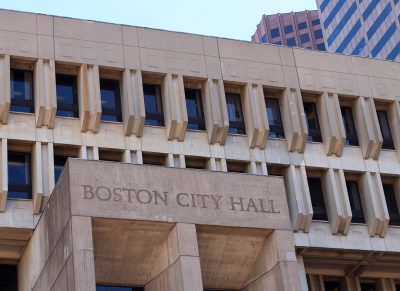
In its first ever plan targeting specifically youth and young adult homelessness, the City of Boston awarded $4.7 million in grants to fund the creation of more than 150 new housing opportunities for individuals aged 24 and under.
Courtney Trudell, assistant director of the Supportive Housing Division at the city’s Department of Neighborhood Development, wrote in an email these opportunities will be divided between long term subsidies to fund permanent supportive housing and medium-term subsidies that will be used to rapidly rehouse those in need.
The remaining opportunities will fund either six beds in crisis-treatment programs or an additional 20 medium-term rapid rehousing subsidies.
Trudell wrote the federal Office of Housing and Urban Development originally awarded $4.9 million to Boston when the city applied for the U.S. government’s Youth Housing Demonstration Program last year.
The plan dedicates $4.7 million of the grant to housing programs, Trudell wrote, while the remaining $200,000 would help cover staffing costs during implementation.
“The City of Boston and the convened coalition of [Youth and Young Adults] and organizations had already committed to creating a community plan, but the federal support absolutely bolstered our bold, comprehensive effort,” Trudell wrote. “This plan is much broader than the City or one entity contributing all of the resources.”
The award is part of a larger initiative to end youth and young adult homelessness called Rising to the Challenge. Trudell wrote the City had met with the Youth Action Board and more than 100 community partners over the past year to generate solutions for youth homelessness.
Ominique Garner, YAB co-facilitator and outreach coordinator, said Rising to the Challenge encompasses a variety of issues related to youth homelessness.
“So basically we use the 4.9 million [dollars] and now the funders are just matching the rest because the plan is very big,” Garner said. “There’s a lot of recommendations, a lot of things that need to be implemented, but we have to have that money match.”
Garner said the plan also aims to collect data on homeless youth to identify those at-risk and connect them to the resources they need.
Bridge Over Troubled Waters, a local organization that has served homeless and runaway youth for 50 years, helped to develop Rising to the Challenge. Executive Director Elisabeth Jackson said Bridge will provide appropriate housing and supportive services during the program’s execution.
“I think because of the housing market in Boston, it will be interesting on how we find apartments for them but really to identify them sooner than later is really what the plan and the coordinated system will help us do sooner than later,” Jackson said. “Right now, usually it takes a couple of days for us or even weeks for us to even know that a young person’s in the shelter so this will be much faster for us to be able to execute services.”
Kelly Turley, associate director of the Massachusetts Coalition for the Homeless, said the most common causes of homelessness among youth include being kicked out of their house — which disproportionately afflicts members of the LGBTQ community — or no longer feeling safe in their home.
Turley said in other cases, young adults end up on the street when their house is overcrowded and their parents feel they can no longer support their child once he or she reaches young adulthood.
Turley said she is glad Rising to the Challenge invites the input of youth themselves in the decision-making process.
“There have been conversations but this was a multi-year effort and really emphasizes the participation and expertise of young people with lived experience of homelessness,” Turley said, “but also brings various organizations to the table with a concerted effort to have a well-crafted and realistic plan that was also aspirational, in making sure that you’re doing what’s within easy reach but also working to achieve more far-reaching goals.”
Catherine Hunt, 27, has been homeless in Boston for three years. She said that while she doesn’t fall into the young adult category anymore, she thinks the plan is “awesome.”
“I have friends that are under 24. They need to do something about it because children don’t deserve to be out here,” Hunt said. “They need a place because you need a place to get a job, to be able to support yourself, especially the young adults.”
Leo Botto, 44, said he has been homeless on-and-off in Boston since 1994 and has witnessed the City’s various efforts to address the issue.
“I’ve seen the several different transitions from the City and how they do things,” Botto said. “Why am I still sleeping on the streets?”
Botto said he wakes up at 5 a.m. to panhandle on the days he doesn’t have work. He said he would like to see his age bracket benefit more from City programs.
“My name is Minister Leo Botto,” he said. “I think City Hall should give me housing, so I have a safe place to pray.”
Ashley Stone, 32, said she believes the plan could be “excellent” as long as the City ensures it is accessible to those with mental health impairment and anxiety, which she said are some of the greatest barriers young people face.
“I’ve had to take a client I work with to a shelter one night and [the staff] wouldn’t let me be with her to help her fill out her paperwork, even though she wanted someone back there with her to make her more at ease,” Stone said. “So I think if it’s done well and there’s housing opportunities, great, but also make sure people have the support they need beyond just a roof over their head.”


















































































































